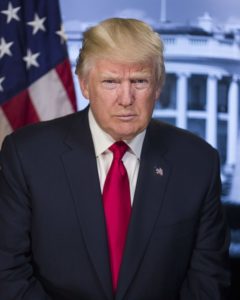Over the past seven days, you have either grown to love or hate executive orders. But regardless of your political perspective, Trump’s actions are showcasing one of the major findings of bargaining theory: namely, that proposal power is one of the greatest sources of bargaining power.
What Is Proposal Power?
Put simply, proposal power is the ability to structure the terms of a possible settlement. It is distinct from receivership, which is the ability to say yes or no to any particular offer.
Perhaps surprisingly, whether you can make an offer has an enormous impact on your welfare. Imagine a seller needs at least $30 to sell and a buyer will buy for no more than $50. Clearly, a transaction should take place, as there is a $20 surplus (the buyer’s maximum minus the seller’s minimum).
If the seller can make a take-it-or-leave-it offer, then he can set the price at $50. The buyer, only having the ability to accept or reject, buys the good—it is just enough to convince him to buy.
Now imagine the buyer makes the take-it-or-leave-it offer. She can set the price at $30. The seller, only having the ability to accept or reject, sells the good—it is just enough to make her willing to part with it.
Who proposes the offer makes a major difference. If we endow the seller with the proposal power, she walks away with the entire $20 surplus. Yet if we endow the buyer with the proposal power, the exact opposite happens: the buyer receives the entire $20 surplus. It’s night and day!
You might think this is because of the take-it-or-leave-it bargaining protocol. It is not. If rejecting simply leads to another round of bargaining where the proposer stays the same, the result is identical: the proposer receives the entire surplus.
The lesson here is simple: without the ability to make offers or counteroffers, the deals reached will look very bad for you.

Proposal Power in Action
In many contexts, proposal power is easy to acquire. At a flea market or car dealership, for instance, nothing stops a buyer or seller from making the initial offer or responding with a counteroffer of their own. They just do it.
Government is different. Some systems have proposal structures baked into the legal system. And this has major consequences for the types of laws that are ultimately implemented.
In the United States, most of the proposal power rests with Congress. That is because only Congress can write laws; the President can merely sign or veto whatever lands on his desk. Thus, if Congress and the President both agree that a law needs fixing, the solution implemented is going to be much closer to what Congress wants than what the President wants.
There is a key exception to that rule, however, and it is what we have been seeing over the last week. Executive orders essentially flip the script—the President institutes the policy, and it is up to Congress to accept it (by doing nothing) or reject it (by creating a bill that undoes the policy, and then overriding the inevitable presidential veto).
It should be obvious that the President choosing his own policies would result in outcomes closer to his ideological preference. I suspect liberals realized this was an issue weeks ago, but only recently realized how bad it would be for them. Bargaining theory goes deeper here and explains this. It isn’t just that the President fares better when choosing the policy than when he signs a Congressional law. It is saying that a strategic, forward-thinking President can set the policy so far to his liking that Congress is just barely willing to go along with it. And if the gulf between Congressional preferences and Presidential preferences is substantial, so too will be the types of policy outcomes associated with executive orders and standard legislation.
This logic sets expectations for what is to come for both fans and foes of Trump. Foes should continue to fear executive orders and should not be particularly worried about laws passed through Congress. Liberals see Paul Ryan as their last remaining hope. And they might find solace there—but only for standard laws. Undoing executive orders requires having a much larger share of Congress on board, so Paul Ryan does not get you very far.
For Trump supporters, it is the opposite: they will find standard laws relatively unexciting but be thrilled with the executive orders.

